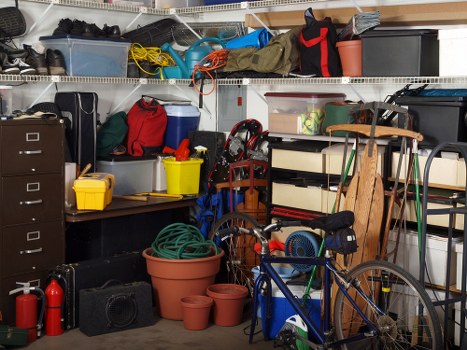Comprehensive Guide to Demolition Waste Removal in Millbank

Introduction to Demolition Waste Removal
Demolition projects in Millbank generate a significant amount of waste that needs to be managed efficiently. Proper demolition waste removal is crucial for maintaining cleanliness, adhering to environmental regulations, and ensuring the safety of the area.
Whether you're renovating a residential property or undertaking a large-scale commercial demolition, understanding the process of waste removal can save you time and resources.
In this article, we will explore the best practices for demolition waste removal in Millbank, the benefits of hiring professional services, and how to ensure compliance with local regulations.

Why Proper Waste Removal is Essential
Proper waste management during demolition is not just about keeping the site clean. It plays a vital role in:
- Environmental Protection: Preventing harmful materials from contaminating the soil and water.
- Safety: Reducing the risk of accidents and ensuring a safe working environment.
- Regulatory Compliance: Adhering to local laws and avoiding potential fines.
Neglecting proper waste removal can lead to severe consequences, including environmental degradation and legal penalties.

Types of Demolition Waste
Understanding the different types of waste generated during demolition helps in planning effective removal strategies. Common types include:
- Concrete and Masonry: These materials are bulky and require specialized disposal methods.
- Metals: Steel, copper, and aluminum can often be recycled.
- Wood: Untreated wood can be reused or recycled, while treated wood requires special handling.
- Asbestos: Hazardous and requires professional removal and disposal.
- Plastics and Insulation: Must be disposed of according to local regulations.
Each type of waste has its own set of regulations and best practices for disposal.

Steps for Effective Waste Removal
Implementing a structured approach to demolition waste removal ensures efficiency and compliance:
- Assessment: Evaluate the site to identify the types and quantities of waste.
- Segregation: Separate recyclable materials from non-recyclable ones.
- Transportation: Use appropriate vehicles to transport waste to designated facilities.
- Disposal: Ensure waste is disposed of in accordance with local regulations.
- Recycling: Recycle materials wherever possible to reduce environmental impact.
Following these steps can streamline the waste removal process and minimize disruptions.

Hiring Professional Demolition Waste Removal Services
While DIY waste removal might seem cost-effective, hiring professional services offers numerous advantages:
- Expertise: Professionals are trained to handle various types of demolition waste safely.
- Efficiency: Experienced teams can complete the removal process faster.
- Compliance: Ensure all waste is disposed of legally and responsibly.
- Equipment: Access to specialized machinery for handling heavy and hazardous materials.
Investing in professional services can lead to better outcomes and peace of mind.

Local Regulations in Millbank
Millbank has specific regulations governing demolition waste removal to protect the environment and public health. Key regulations include:
- Mandatory segregation of recyclables.
- Proper disposal of hazardous materials like asbestos.
- Licensing requirements for waste transporters.
- Penalties for non-compliance.
Staying informed about these regulations is essential for any demolition project.

Recycling and Sustainability
Emphasizing recycling in demolition waste removal contributes to sustainability by:
- Reducing landfill usage.
- Conserving natural resources.
- Lowering carbon footprint.
- Encouraging the reuse of materials.
Adopting sustainable practices not only benefits the environment but can also enhance your project's reputation.

Cost-Effective Waste Removal
Effective waste removal can be cost-effective by:
- Minimizing Material Costs: Reusing and recycling materials can reduce overall expenses.
- Preventing Fines: Complying with regulations avoids costly penalties.
- Efficient Operations: Streamlined processes save time and labor costs.
Investing in proper waste management upfront can lead to long-term savings.

Choosing the Right Waste Removal Partner
Selecting a reliable waste removal service in Millbank involves considering:
- Experience: Look for companies with a proven track record.
- Licensing and Insurance: Ensure they are properly licensed and insured.
- Compliance: They should adhere to all local regulations.
- Reputation: Check reviews and testimonials.
Partnering with the right service provider ensures a smooth and compliant waste removal process.

Technology in Waste Removal
Advancements in technology have enhanced demolition waste removal by:
- Improving sorting and recycling processes.
- Enhancing transportation efficiency.
- Providing better tracking and reporting.
- Reducing environmental impact.
Utilizing modern technology can make waste removal more efficient and sustainable.

Environmental Impact of Improper Waste Disposal
Failing to manage demolition waste properly can lead to:
- Soil and water contamination.
- Air pollution from dust and harmful emissions.
- Harm to local wildlife and ecosystems.
- Negative effects on community health.
Ensuring proper waste removal mitigates these environmental risks.

Future Trends in Demolition Waste Management
The future of demolition waste management is focusing on:
- Increased recycling rates.
- Use of sustainable materials.
- Enhanced waste tracking systems.
- Greater emphasis on circular economy principles.
Staying updated with these trends can help in adopting best practices.

Conclusion
Effective demolition waste removal in Millbank is essential for environmental protection, safety, and regulatory compliance. By understanding the types of waste, adhering to local regulations, and partnering with professional services, you can ensure a smooth and responsible demolition process.
Don't let waste management be a hurdle in your demolition project. Contact us today to book your waste removal service and ensure your project complies with all necessary standards.